Dartmouth College, the smallest school in the Ivy League, is nestled in the mountains of northern New Hampshire. The average GMAT score for Dartmouth’s Tuck School of Business is very high. However, if you’re interested in a small and intimate program, studying for a high GMAT score will be worth it. Like Dartmouth College as a whole, the MBA program at the Tuck School of Business is uniquely small. This, coupled with its beautiful setting, could make Tuck the perfect program for the right student.
Dartmouth Tuck MBA: GMAT Scores, Acceptance Rate, and GPA
What do you need to know about getting into the Dartmouth MBA program? First of all, take a look at some key stats!
| Acceptance Rate | 34.8% |
| Average GMAT Score | 724 |
| Average GRE Score | 162 (Verbal), 162 (Quant) |
| Average Undergraduate GPA | 3.54 |
| Entering Class Size | 294 |
Other than the small class size, what does this table tell you? Importantly, it shows just how high the test scores are for successful Tuck MBA candidates. An average of 724 is around the 95th percentile of GMAT scores meaning that students with this score were in the top 5% of test-takers. Furthermore, Tuck’s average score has shot up in the last year, from 720 to 724.
Of course, this is just the average score of all successful applicants! The Tuck GMAT range is really quite broad, ranging from 600-780. However, the higher your score, the better your chances of admission.
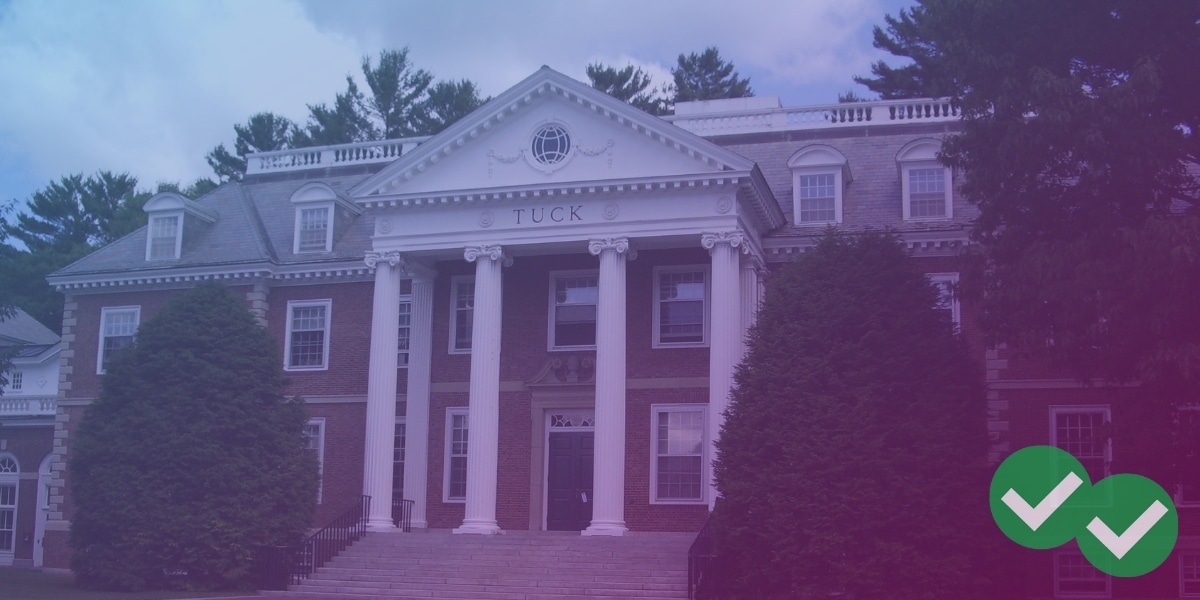
What is the Tuck MBA program known for?
The Tuck School of Business is very small, with a total enrollment of around 500 students. This makes the program extremely small when compared with its competitors Harvard, Columbia, and others. But, for many Tuck students, the program’s size is its main strength. Because students are easily able to meet and to get to know each other, the program is said to have more of a collaborative than competitive environment. This can be a welcome relief from the environments at many comparable B-schools–and particularly notable given that Tuck currently ranks #10 for top business schools from US News & World Report!
Most business schools have multiple degree programs in addition to the MBA. But that isn’t so at Tuck: it has only one program, its traditional, two-year MBA. For some students seeking an Executive MBA, a part-time program, or a joint degree program, that’s obviously a deterrent. But for the student who wants an MBA, Tuck believes there are many advantages to attending an MBA-only school. It means that all the resources of the school are focused on this two-year program.
Finally, Tuck alumni can tell you how much they enjoyed Tuck—more than 70% of its alumni contribute to their annual fundraising program! Alumni giving is a pretty strong metric of how much students actually enjoyed their educational experience. (You’re not going to donate to a place you didn’t like, after all.)
How to Get Into Dartmouth’s Tuck Business School: MBA Application
Remember that your GMAT score (or GRE score) won’t be the only factor that the admissions committee looks at! Other factors also matter in admissions. In addition to a high GMAT score for Dartmouth, you’ll want to arrive on campus with substantial work experience. On average, students arrive with 5 years of high-quality prior work.
There are also additional components of the application that you’ll need to complete. Take a look at the criteria Dartmouth will use to evaluate your application.
GPA
As mentioned in the table above, the average GPA of admitted Tuck students is 3.54, or somewhere between an A-/B+ average. Pretty high! If you’re unsure of what your GPA is, you can use this GPA calculator to determine it. If it’s significantly lower than 3.54, but Tuck is your dream school, keep in mind that this is just an average. However, you’ll want to compensate for a lower-than-average GPA with high test scores, standout essays, and otherwise stellar other components of your application!
Essays
There are three main essay questions that all candidates must complete. Each essay must be less than 300 words. There is also an optional essay in which you can explain anything you feel the admissions committee should know. Finally, if you’re reapplying, you’ll need to complete an essay explaining what’s changed since your last application.
Letter of Recommendation
The Tuck MBA program requires two letters of reference, one of which should be from your current professional supervisor. These letters should answer specific questions about you and your work.
Interviews
Applicants in Round 1 and Round 2 will have the chance to interview with Tuck (note that these interviews may happen virtually). After Round 2, interviews are invitation-only and given on a rolling basis. In other words, first come, first served–another good reason to get your apps in early!
Tuck MBA Program Curriculum
Tuck’s program combines the usual classroom learning with electives and projects. The required curriculum is completed over four semesters, with 3-5 required courses each semester. The courses won’t surprise anyone who’s looking at business school: they range from financial accounting to management communication.
In addition to the core curriculum, students take electives during their last two semesters. Here, second-year students have the opportunity to explore coursework most relevant to what they want to do after graduation, whether this is working in ethics, healthcare, or somewhere else entirely.
The Dartmouth MBA program also offers a pathway in management science and quantitative methods for students who have taken 15 MBA credits or more of electives in these areas.
Finally, Tuck MBA students complete a required first year project, in which they apply the knowledge they’ve gained from the program to real-world issues.
Tuck MBA Employment Outcomes
What does the future look like for those who get their MBA from Dartmouth Tuck? Pretty darn bright! At graduation, 81.1% of students have full-time employment opportunities waiting. By three months after graduation, this figure jumps to 92.3%.
The average base salary after graduation comes in at $143,867, and the range of base salaries goes from $64,167 to $200,000. The low end jumps to $80,000 and the average to $146,192 for US citizens. On average, graduates received a starting bonus of $34,171.
Conclusions
For students seeking a well-regarded, small, and collaborative graduate business program at an Ivy League university, the Tuck School of Business might be perfect. The school combines high-quality career prep with a small rural setting that allows for close contact with one’s peers. All of this means, of course, that admissions are highly selective! Getting into Tuck, a top business school, is no easy feat. The average GMAT score for Dartmouth’s Tuck School of Business is well into the upper percentiles. Meeting that threshold won’t be easy, but for those who do, it will open the door to a worthwhile two years of MBA education!
Finally, as you consider Tuck, be sure to consider other top MBA programs. Magoosh’s list of the top MBAs in the U.S. is a great place to start!

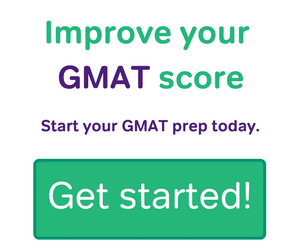

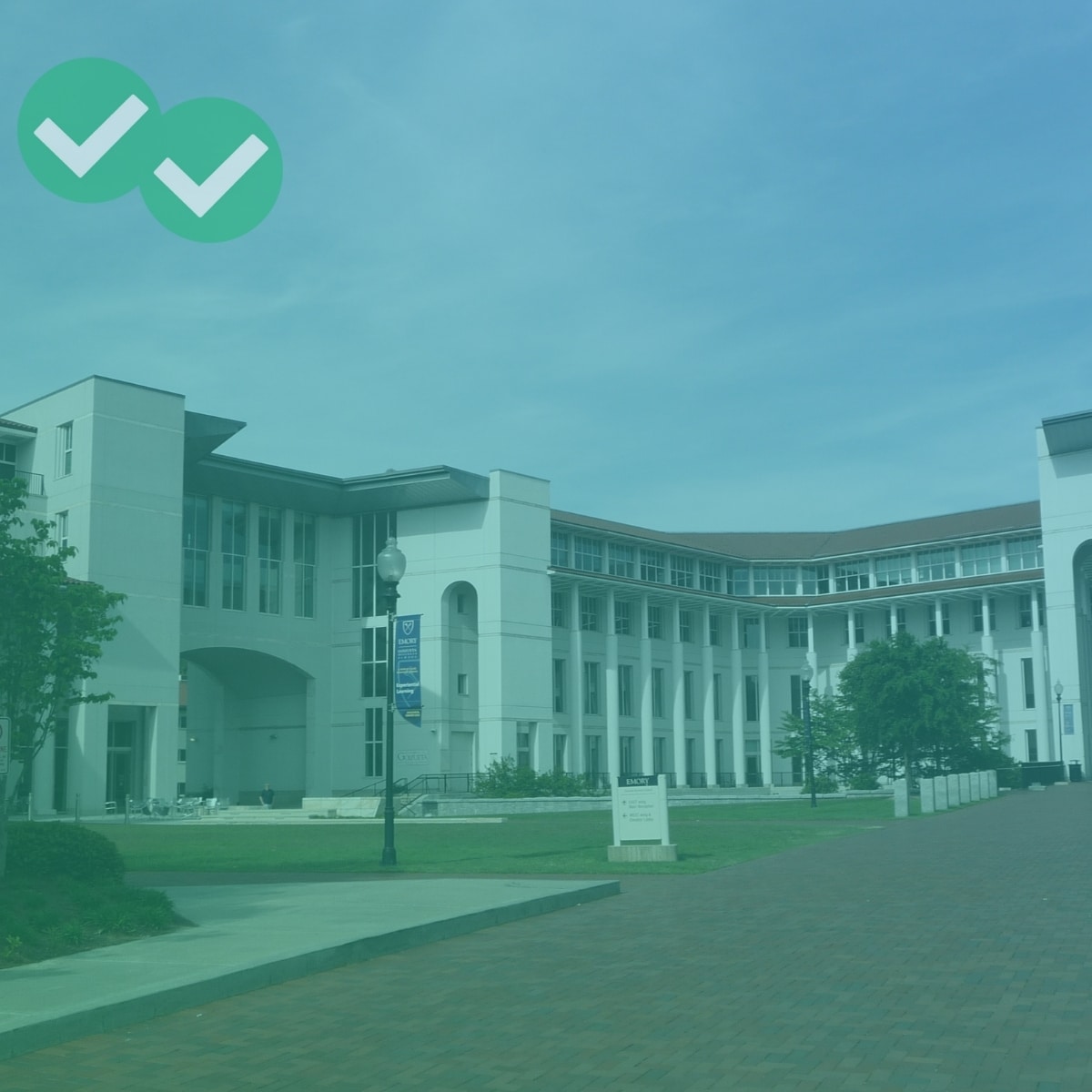
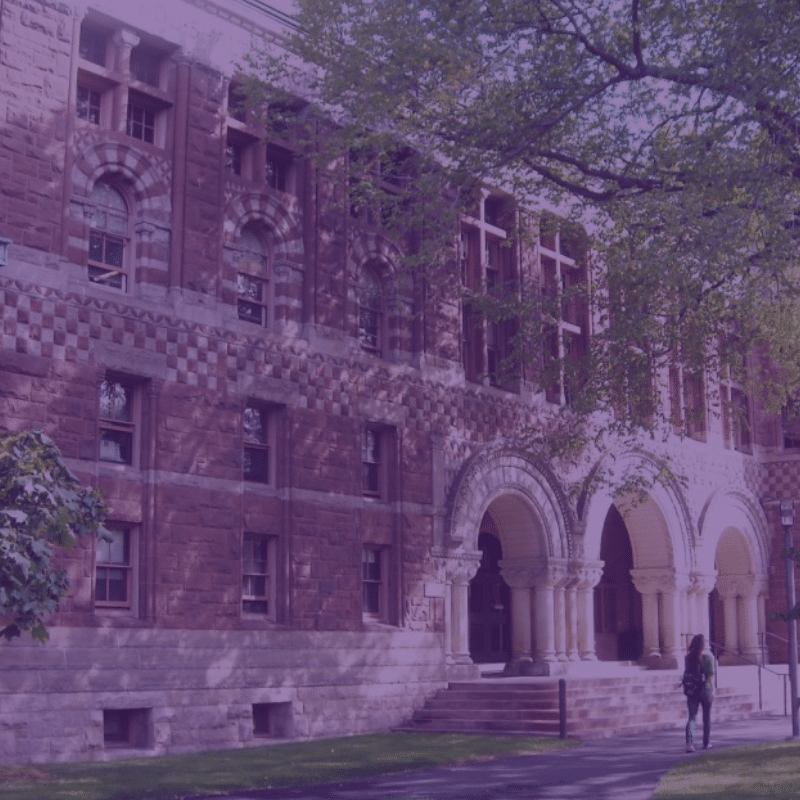
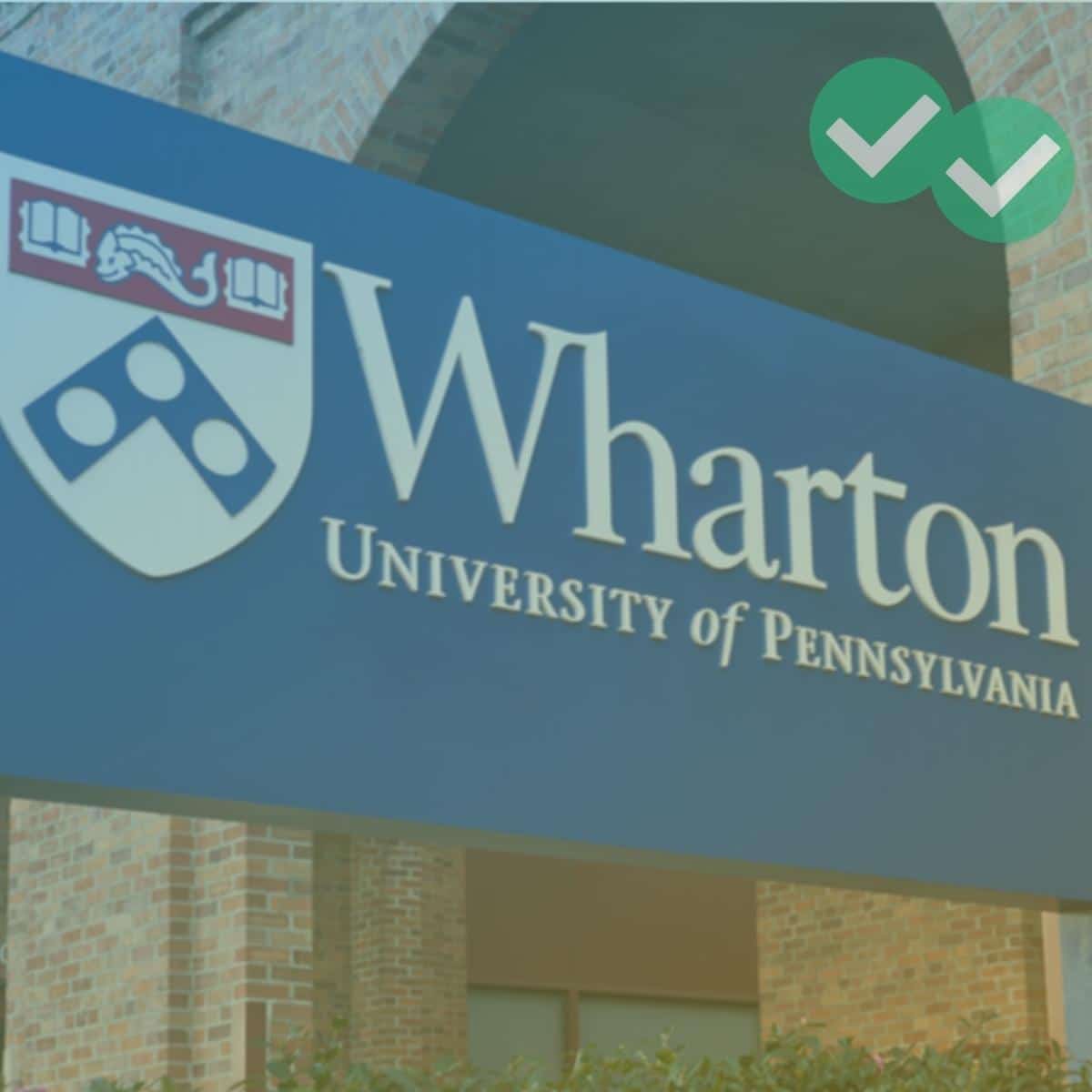
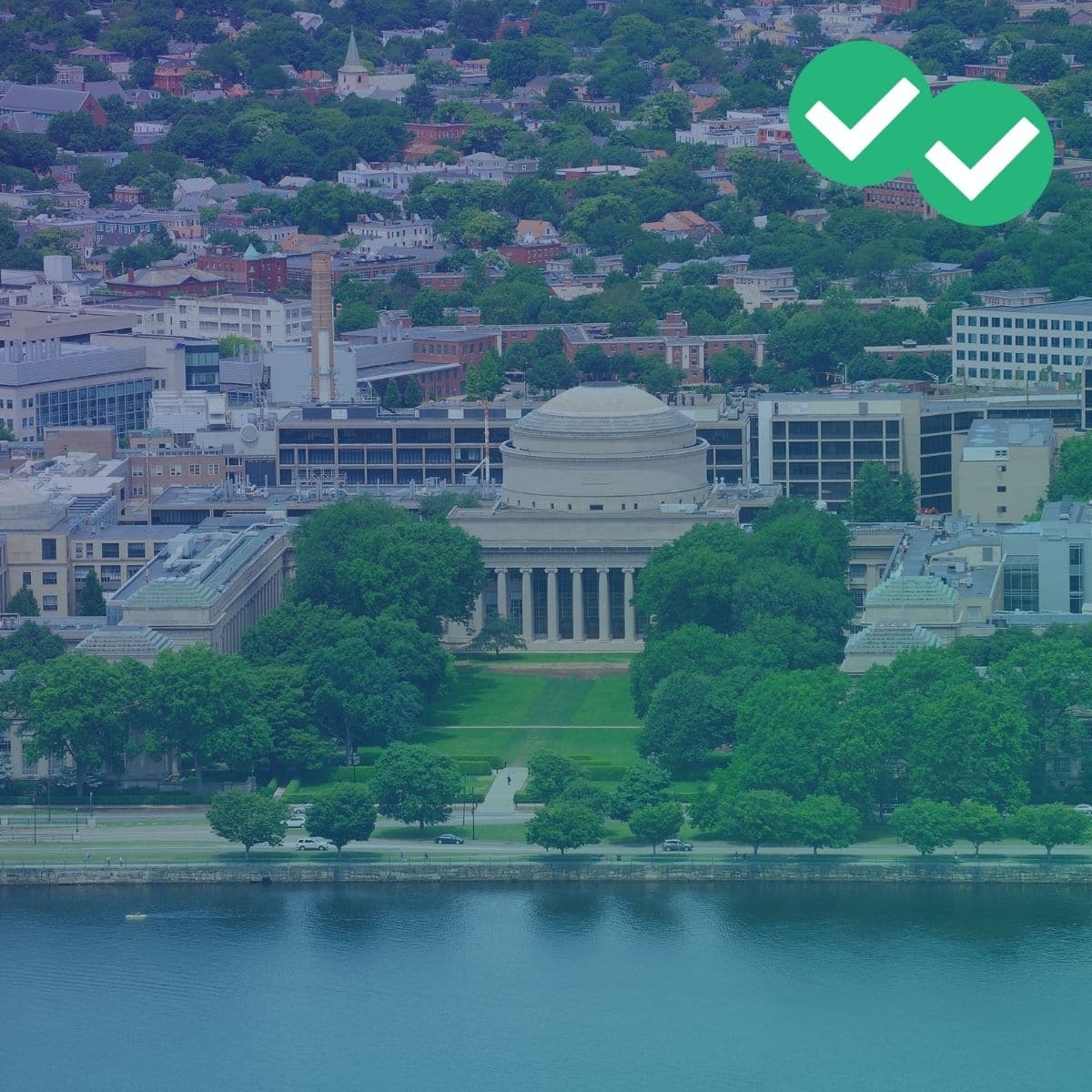
Leave a Reply